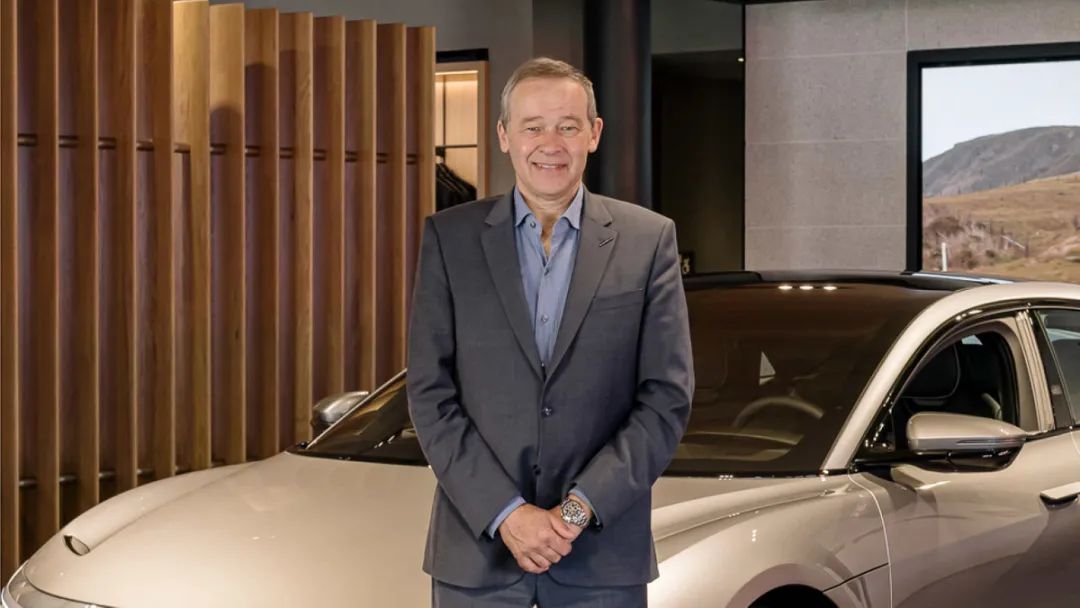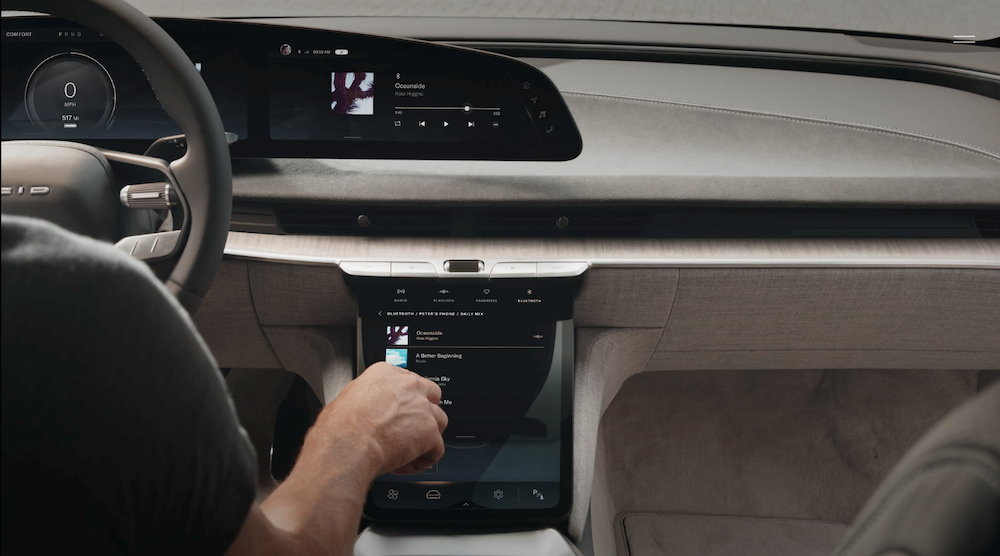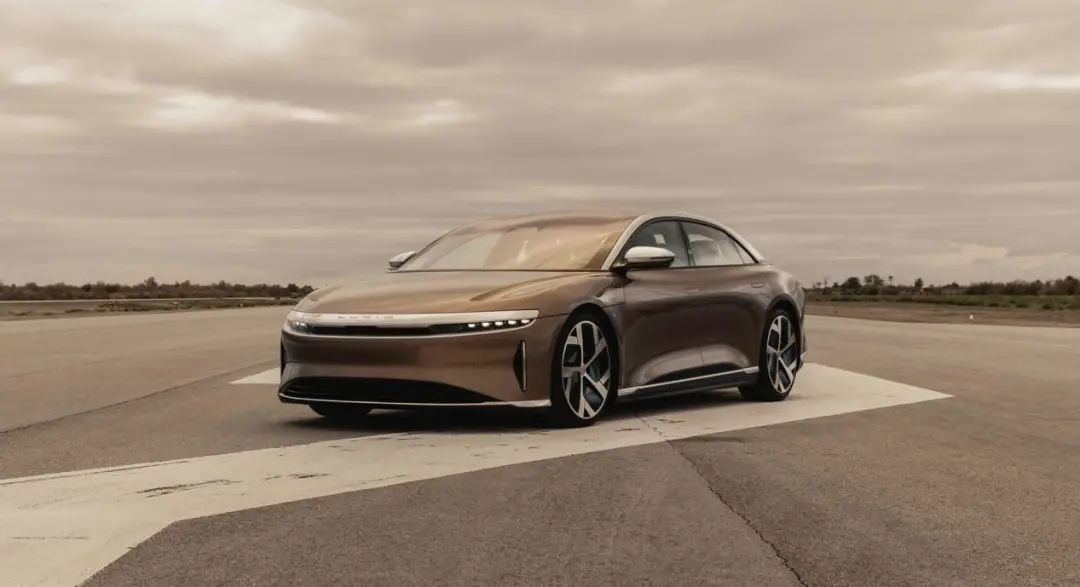Author: Mr.Yu
Lucid Motors is finally listed on NASDAQ in the United States.
On July 26, 2021, Beijing time, Churchill Capital Corp IV (also known as “CCIV”), a special purpose acquisition company (SPAC), and Lucid Motors announced the completion of their business merger. Lucid, which takes “setting a new standard for luxury electric cars” as its mission, has officially gone public. On the first day of trading, the stock rose by 10%, with a total market value exceeding $40 billion.
The CEO and CTO of the company, Peter Rawlinson (referred to as “Rawlinson” below), who is often referred to as the “Tesla killer” by media around the world, explained in an interview with foreign media before his first appearance on NASDAQ that Lucid raised $4.4 billion through its SPAC transaction with CCIV.
The story behind this is touching.
The birth of EVs from the “Old Tesla” people
Lucid can’t be considered a relatively new force in the case.
The predecessor of the company was established in 2007 with the name Atieva and was headquartered in Newark, California. Atieva was originally dedicated to manufacturing batteries and powertrains for other automakers. It was not until 2014 that it formally entered the automotive manufacturing industry and changed its name to Lucid Motors in 2016.
The company was founded by two Chinese Americans, Bernard Tes and Sam Weng.
Rawlinson, who is currently in charge of the company, initially joined Lucid as its CTO in 2013 and was appointed as its CEO and CTO in April 2019, until now.

Before joining Lucid, Rawlinson has served with Jaguar and Lotus for many years, and later joined Tesla in 2009.
At first, the technology enthusiasts Rawlinson and Elon Musk were passionate about their work together. Few people have both a technical perspective and a commercial acumen, so the success of the Tesla Model S’s sales after its launch in 2012 could not have been achieved without Rawlinson’s efforts.
It can be said that Rawlinson is also an “old Tesla” person.
In 2012, Rawlinson took a long leave of absence because his mother was seriously ill. There was a disagreement between him and Musk during the development of the Model X, leading to the dissolution of the partnership. Rawlinson later joined Lucid.On September 9, 2020, Lucid released four versions of the Lucid Air, namely Air, Air Touring, Air Grand Touring, and Air Dream Edition, with guide prices of $80,000, $95,000, $139,000, and $169,000, respectively. The delivery time for each version is 2022, Q4 2021, Q2 2021, and Q2 2021, respectively.
If we overlook the upcoming Model S Plaid, which will debut six months later, Lucid’s previous product strategy is quite interesting, as they have established a partial advantage against different versions of the Model S, like a game of Chess.
In terms of the logic of product delivery, Lucid Air versions are also delivered first from the most expensive version.
Lucid is not the first company to do this.
In 2004, Musk led the Series A funding round with an investment of $6.5 million and became Tesla’s largest shareholder and chairman. In 2006, Musk proposed a strategic roadmap called “Master Plan” that would run through Tesla’s development:
Start with a relatively expensive niche sports car (Roadster) → → use the money earned to build a relatively inexpensive, moderately selling model (Model S / X) → → use the money earned to build an economical and popular mainstream model.
The advantage of doing so is to establish market awareness first, establish a position in the industry and the market, and then use the revenue to create different positioned models, gradually enrich the product line, and form a positive brand effect.
This is where Lucid’s brand positioning comes in.
Lucid’s positioning is a “Post-Luxury” brand that goes beyond the traditional definition of luxury brands. They attract users who have higher expectations for brand value, experience, and design through the performance, technology, and sustainability of Lucid’s vehicles.
It is not surprising that in the public IPO document, Lucid admits Tesla’s innovation, but does not recognize them as the main competitor. Apparently, Tesla, who is striving to become a “popular” new energy vehicle, is not “luxurious” enough for Lucid.
Therefore, BBA, the new energy vehicle team from Germany, is Lucid’s main competitor.In terms of power efficiency, Lucid Air has achieved 760 horsepower and an astounding power-to-weight ratio of 9.0 on a 74kg motor.
If you are interested, you can try and guess the models of the German luxury electric motor, the American compact electric motor, and the full-size American electric motor, which are shown in the pictures as competitors.
This is the logic of Lucid, which does not boast about beating Tesla but always keeps an eye on it.
According to friends in the United States, you cannot criticize Tesla on social media like in China, otherwise fans will immediately attack you.
Everyone says that they will beat Tesla before the 20XX, as vast as the Pacific, and even He XPeng and Ma Yilong are having a virtual quarrel. But we have to say that regardless of praise or criticism, Tesla’s “position” in the industry cannot be achieved without everyone’s contribution – maybe including ours.
The reputation of “Timely Rain” Song Gongming has long been spread throughout the industry. The bosses of all parties must give face, right?
Nevertheless, we should not only focus on Tesla. Otherwise, future generations might think that Ma Yilong himself is the founder of EVs, and that Tesla is the “Whampoa Military Academy” of electric vehicles.
Speaking of which, 8 out of 19 senior executives at Lucid, including current CEO Rawlinson, have worked at Tesla.
Whether or not Lucid actually considers the electric products of German luxury car brands as its main competitors, Ma Yilong may be somewhat concerned about this former colleague’s leadership over Lucid – in any case, according to Ma Yilong, Rawlinson is not a genius, and this matter is not cool.
Now, let’s take a look at the company’s fundraising process, which has also been a thrilling ride.# Lucid Motors Raised $4.4 Billion from CCIV SPAC Merger
Lucid Motors CEO Peter Rawlinson said in an interview with foreign media before the company’s NASDAQ debut that the merger with CCIV SPAC raised $4.4 billion. This transaction valued Lucid at an initial estimate of $24 billion, making it the largest deal of its kind involving an electric vehicle company and a blank-check company.
Prior to this, the valuations of electric vehicle startups such as Nikola, Fisker, and Lordstown Motors, which had reached deals with SPACs, were all less than $4 billion.
Rawlinson pointed out that when Tesla was listed, it only raised $300 million, putting Lucid in a better position in its development stage. “This is a huge contrast,” Rawlinson said, adding that the financing put Lucid in a “favorable position for strategic growth,” and the company will use the $4.4 billion to expand production and promote its “strategic and prudent growth.”

Since 2013, several Asian investment institutions, including China’s clean energy venture capital firm Qingyun Capital and Japan’s Mitsui & Co., have participated in Lucid Motors’ early financing.
In January 2014, BAIC invested $100 million in Lucid Motors’ series C financing, becoming the largest shareholder at the time. That same year, then high-profile Jia Yueting invested $200 million in Lucid Motors in his personal capacity, becoming the second-largest shareholder.
In 2015, there were differences in principle between BAIC and Bernard Tes about the route to take. Bernard Tes wanted to prioritize the US market, while BAIC wanted to prioritize the Chinese market. Subsequently, BAIC, the largest shareholder, sold all of its shares to Jia Yueting, who became the largest shareholder with a stake of 40%.
As we all know, the future of Faraday was also in a financial crisis along with LeTV. Helpless, Jia Yueting sold all of his Lucid Motors shares.

In 2016, with the announcement of its new car plan, the Lucid Air debuted in the public eye for the first time. However, with money running short, the intelligent factory in Arizona could not be built, and the Lucid Air could not be delivered on time. This was also the main reason why Lucid was forced to launch its series D financing round in 2017.The largest funding received by Lucid came from the Public Investment Fund (PIF) of Saudi Arabia, a traditional exporter of fossil fuels. This explains why there is a vice president and international investment director of PIF, Turqi Alnowaiser, on Lucid’s current board of directors. Since the two parties first contacted in 2018, Lucid has received $2 billion from PIF, which was supplemented with another $1 billion in September of the same year. Currently, Saudi owns over 60% of Lucid Motors with an investment of $2.9 billion. Saudi officials have stated that their investment strategy is in line with the country’s vision of economic diversification by 2030. Middle Eastern old money has also realized that investing in the US new energy automobile industry, which has nothing to do with oil and may not affect their oil profits, is more conducive to sustainable development, as a single economic structure is not.
Lucid Motors has now successfully gone public, and mass-produced models will soon be available. According to reports, Lucid Motors, which went public through SPAC, is expected to help PIF achieve nearly $20 billion in returns.
In a postscript, GeekCar’s article “Lucid Air: ‘Bumping’ into Tesla” introduced Lucid’s first car, Lucid Air. At that time, the promises made by Rawlinson and his old partners were enough to excite anyone passionate about new technologies. However, we still need to calmly understand some issues: Lucid’s future is promising, but the first product has not yet been launched to generate cash income for the company. Based on this fact, blindly investing in a company whose market value has risen sharply but has no revenue requires special attention to internal risks for individual investors. Perhaps because Rawlinson, who is in charge of Lucid, is the “old Tesla” and a low-key technical expert, Lucid, which has just “gone official” from a start-up company, often looks more like a traditional car company’s low-key and rigorous style, with no founders wielding lips and swords on social networks and no product line of sharp confrontations. But in the world of adults, there is no fairy tale, and a person who does not have the desire to persist does not mean that he does not want to win. We appreciate one of Rawlinson’s remarks and end with it today:”Words are cheap. We are nothing until we’ve got anything into production.”
「It’s easy to talk big, but we are nothing until we have actually achieved mass production.」
This article is a translation by ChatGPT of a Chinese report from 42HOW. If you have any questions about it, please email bd@42how.com.
